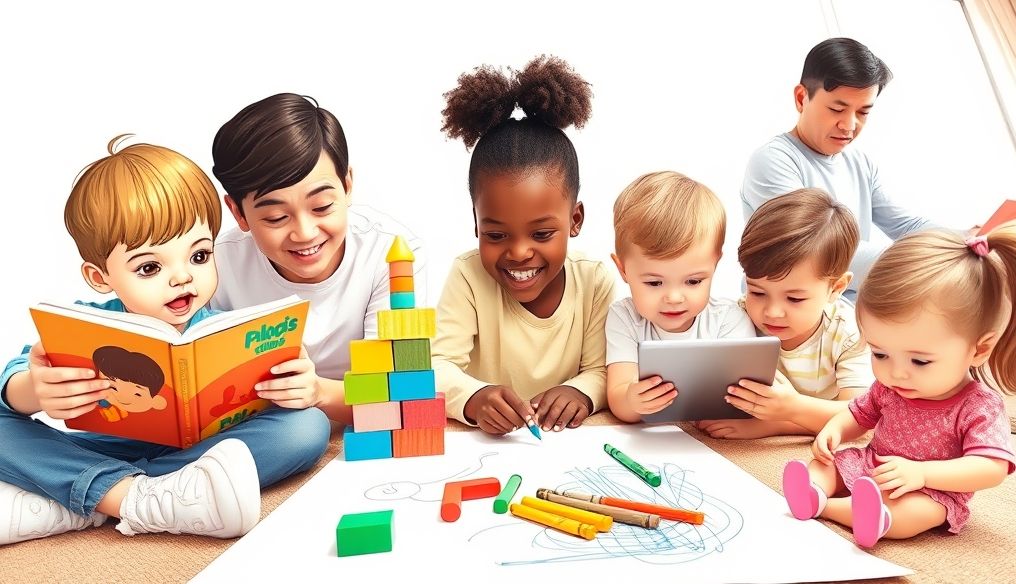Does Physical Punishment Build a Strong Generation or Destroy a Child's Psyche?
Physical punishment, the use of physical force to cause pain or discomfort with the intention of correcting a child's behavior, has long been a part of parenting practices in many cultures around the world. However, its effectiveness and long-term impact on children remain a subject of heated debate among education experts and psychologists.
A Historical Perspective on Physical Punishment
Throughout history, physical punishment was considered an acceptable, even necessary, means of teaching children discipline and compliance. In the past, children were often viewed as the property of their parents, who had the full right to raise them in the way they saw fit. As our understanding of psychology and sociology has evolved, this view has begun to change, and there is now a growing awareness of the potential negative effects of physical punishment.
Arguments in Favor of Physical Punishment
Despite increasing criticism, there are still some proponents of physical punishment who believe it can be effective in certain situations. Their arguments include:
- Immediate Deterrent: Physical punishment can immediately stop unwanted behavior, teaching the child that this behavior is unacceptable.
- Respect for Authority: Some believe that physical punishment reinforces a child's respect for authority, whether it is the authority of parents or teachers.
- Cultural Tradition: In some cultures, physical punishment is considered a natural part of parenting, and they believe it helps preserve values and traditions.
Arguments Against Physical Punishment
The arguments against physical punishment are based on a wide range of research and studies that point to its negative effects on children. These arguments include:
Negative Psychological Effects
Physical punishment can lead to a variety of psychological problems, including:
- Anxiety and Depression: Children who are subjected to physical punishment are more likely to develop anxiety and depression later in life.
- Low Self-Esteem: Children who are subjected to physical punishment may feel unloved and worthless, leading to low self-esteem.
- Behavioral Problems: Contrary to popular belief, physical punishment can exacerbate behavioral problems in the long run, as children learn that violence is an acceptable way to solve problems.
The Relationship Between Physical Punishment and Violence
Research suggests a strong link between physical punishment and violence. Children who are subjected to physical punishment are more likely to become abusers in the future, whether towards their partners or children.
Alternatives to Physical Punishment
There are many effective alternatives to physical punishment that can help raise children in a healthy and positive way. These alternatives include:
- Effective Communication: Talk to your child about their unwanted behavior, explain why it is unacceptable, and offer positive alternatives.
- Positive Reinforcement: Reward your child for good behavior, rather than focusing only on punishing them for bad behavior.
- Setting Boundaries: Set clear boundaries for your child, and make sure they understand the consequences of crossing those boundaries.
- Good Role Modeling: Be a good role model for your child, and show them how to solve problems in a peaceful and non-violent way.
- Logical Consequences: Use logical consequences that are appropriate for the unwanted behavior. For example, if your child does not tidy up their toys, you may have to deprive them of playing with them for a while.
Physical Punishment and the Law
In many countries, physical punishment is illegal, especially in schools. Even in countries that do not completely ban it, there are restrictions on the type and severity of punishment allowed. It is important to be aware of local laws regarding physical punishment before using it.
Studies and Research on Physical Punishment
There is a large body of studies and research that supports the negative effects of physical punishment. For example, a study published in the journal Pediatrics found that children who are subjected to physical punishment are more likely to develop behavioral and emotional problems, even after taking into account other factors such as socioeconomic status.
The Role of Culture in Society's View of Physical Punishment
The view of physical punishment varies greatly between different cultures. In some cultures, physical punishment is considered acceptable and even necessary for raising children, while in other cultures, it is considered unacceptable violence. It is important to be aware of these cultural differences, but we must also remember that scientific research indicates that physical punishment has negative effects regardless of culture.
Tips for Parents
If you are a parent, it is important to think carefully about using physical punishment. There are many effective alternatives that can help you raise your children in a healthy and positive way. Remember that the goal of parenting is to teach and guide children, not to scare or hurt them.
- Research Information: Read more about the negative effects of physical punishment, and learn about effective alternatives.
- Talk to Experts: Talk to an educational counselor or psychologist for advice and guidance.
- Be Patient: Raising children requires patience and effort, and there are no quick and easy solutions.
- Unconditional Love: Show your children your unconditional love, even when they make mistakes.
Conclusion
Based on the available scientific evidence, it appears that physical punishment is not an effective means of parenting. On the contrary, it can have negative effects on a child's psyche and behavior in the long run. It is always better to use positive and non-violent alternatives to teach and guide children.




